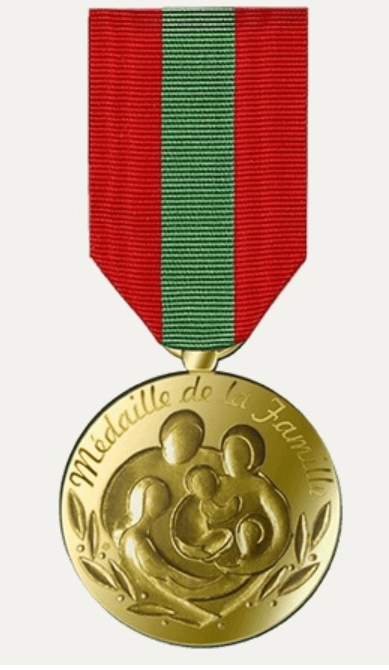What’s it like becoming a maman in France?
The day I found myself with a ballooning belly in Paris was the day I was also initiated into the hallowed French realm of maman-hood. Experiences vary, but I found some telling differences between those here in France and what I’ve heard from friends and family States-side.
There is no doubt that in France, maternity has long been considered a mark of vitality and national pride. The country has a fascinating history of pro-natalist policies, from generous health and welfare programs, state-run daycare and nursery schools, cash bonuses, tax breaks, discounts on rail travel, and even a medal for big broods (more about that later). No wonder the French rank as some of the most enthusiastic procreators in Europe, weighing in at 1.9 babies per woman, proudly above the continental average.
For me, however, the stats had a personal impact. All of a sudden, people smiled at me on the street, ushered me before them on supermarket lines, and graciously offered their seats on crowded metros. Most surprising of all, I started receiving letters from the French government and CAF, Family Allowances Fund, with exclamation marks. Félicitations! they read, before proceeding to tell me how I might organize this next exciting stage of my life.
After registering at my local public hospital, I was given a schedule of appointments for the next nine months, and a free Mommy kit complete with baby bottle, pacifier, diapers and a panoply of pamphlets with advice on what to eat, what not to eat (beware of unwashed strawberries and lettuce!) where to register for daycare, and how to claim 16 weeks of maternity leave with full pay. Oui, you read that right.
The next big surprise came when I discovered the all-important role of the sage-femme in France. Although translated as “midwife” the concept is not quite the same thing as its Anglo counterpart. Sage-femmes must earn a national diploma to practice their trade, after 5 years of higher education that includes one year of medical school. French social security covers 8 pre-natal sessions with a licensed sage-femme that are chock-full of information about giving birth, taking care of a newborn, and prenatal yoga to boot. It’s even the sage-femme who might be calling the shots on the big day to bring your bundle of joy into the world. According to the French National Institute of Statistics, it is the sage-femme who delivers up to 80% of babies in public hospitals, without the presence of an obstetrician. In France, it is entirely possible that doctors will only make an appearance if medically necessary, for example to perform a Caesarian section, a relatively rare procedure in France. And another big difference: in France, unlike in the US, it is not at all a given that the sage-femme or obstetrician who saw you through your pregnancy will be the one who is there on the big day. You get whoever is on duty, at least in public hospitals.
The average hospital stay after birth in France is three days, although French health care will cover up to 12 days 100%. But the state generosity doesn’t stop there. An agent or sage-femme from PMI, a free public service dedicated to making sure new mothers and their offspring adjust to life at home, will make house calls after birth, to check up on Maman and Bébé and make sure you have everything you need.

In case you’re not yet convinced that the French are serious about babies, the médaille de la famille might do the trick. This medal is awarded to families with broods of 4 or more. A tradition inaugurated after WWI to encourage the French to re-populate after devastating demographic losses, it used to consist of three categories: bronze for 4 kids, silver for 5-7 kids, and gold from 8 on. Nowadays, it’s a one-size-fits-all affair, from 4 kids. Eligible families must be nominated by an outside party, after the eldest of their bunch reaches the age of 16, and they must be deemed to have raised the children “in dignity,” which of course is open to interpretation. The purely honorific title can accompany an official ceremony at the local mairie, or administrative headquarters of any town or district, upon request. Vive la France !





